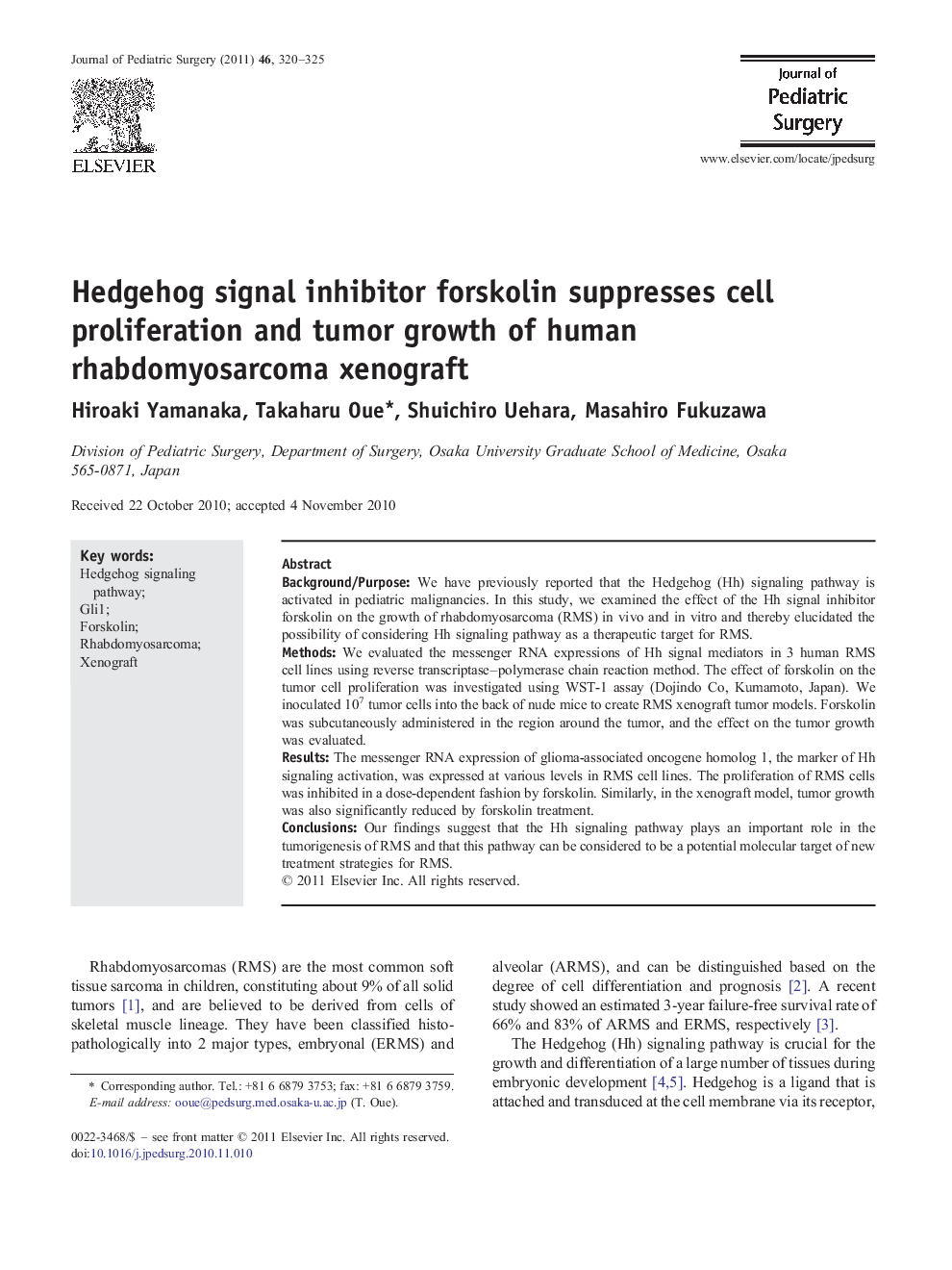| Article ID | Journal | Published Year | Pages | File Type |
|---|---|---|---|---|
| 4157142 | Journal of Pediatric Surgery | 2011 | 6 Pages |
Background/PurposeWe have previously reported that the Hedgehog (Hh) signaling pathway is activated in pediatric malignancies. In this study, we examined the effect of the Hh signal inhibitor forskolin on the growth of rhabdomyosarcoma (RMS) in vivo and in vitro and thereby elucidated the possibility of considering Hh signaling pathway as a therapeutic target for RMS.MethodsWe evaluated the messenger RNA expressions of Hh signal mediators in 3 human RMS cell lines using reverse transcriptase–polymerase chain reaction method. The effect of forskolin on the tumor cell proliferation was investigated using WST-1 assay (Dojindo Co, Kumamoto, Japan). We inoculated 107 tumor cells into the back of nude mice to create RMS xenograft tumor models. Forskolin was subcutaneously administered in the region around the tumor, and the effect on the tumor growth was evaluated.ResultsThe messenger RNA expression of glioma-associated oncogene homolog 1, the marker of Hh signaling activation, was expressed at various levels in RMS cell lines. The proliferation of RMS cells was inhibited in a dose-dependent fashion by forskolin. Similarly, in the xenograft model, tumor growth was also significantly reduced by forskolin treatment.ConclusionsOur findings suggest that the Hh signaling pathway plays an important role in the tumorigenesis of RMS and that this pathway can be considered to be a potential molecular target of new treatment strategies for RMS.
